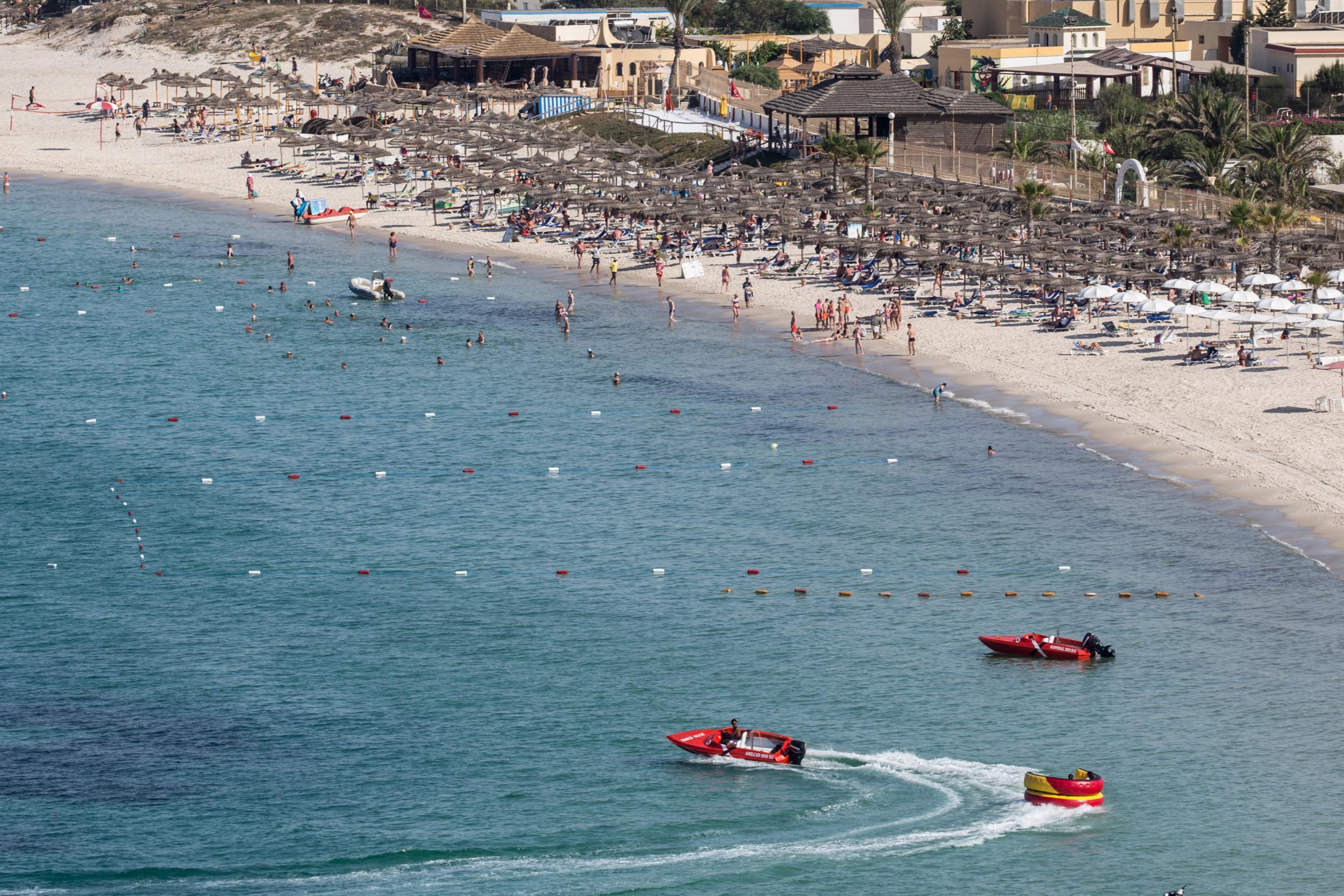Tunisia faces prospect of vicious cycle as tourism slumps and extremism rises
Since the horrific events of June 2015 there has been just one significant terror attack in Tunisia – against presidential guards. There were none in 2016. Yet British tourist visits to the country have dropped 90 per cent and stayed down

Your support helps us to tell the story
This election is still a dead heat, according to most polls. In a fight with such wafer-thin margins, we need reporters on the ground talking to the people Trump and Harris are courting. Your support allows us to keep sending journalists to the story.
The Independent is trusted by 27 million Americans from across the entire political spectrum every month. Unlike many other quality news outlets, we choose not to lock you out of our reporting and analysis with paywalls. But quality journalism must still be paid for.
Help us keep bring these critical stories to light. Your support makes all the difference.
The decision by a coroner to clear the tour operators of neglect over the murders of 30 British tourists on a Tunisian beach two years ago has left the bereaved families dismayed.
They are now suing the company, holding that it should have put more emphasis on Foreign Office travel advice for the country and ensured better security at the hotel where the lethal attack took place.
What happened at the inquest into the massacre raises important questions about holidays at a time of international terrorism, how a country is designated as unsafe for travel and what effect boycotting such places will have on local economies as well as security in the West.
Since the killings on the beach in Sousse in June 2015, there has been one significant attack in the country, in November that year, in which 12 members of the presidential guard died in Tunis. In that same period terrorists have struck a dozen times in Europe, killing more than 250 people, a large number of other plots, in addition, have been foiled.
But, unsurprisingly, British tourists are staying away from Tunisia, a drop of around 90 per cent since the attack. The government in Tunis, which has taken extensive security measures, a lot of it with UK advice, since Sousse, has asked the Foreign Office a number of times to drop its warning on travel to the country. These pleas have been turned down.
Delivering the inquest verdict of unlawful killing, Judge Nicholas Lorraine-Smith described the conduct of the Tunisian police as “at best shambolic, at worst cowardly”. That is roughly what my colleagues and I, reporting on the murders in Sousse at the time, discovered. But we also learned how brave the staff at the hotel had been during the attack.
And that many more of the tourists, Britons, would have been killed had these workers not repeatedly put themselves at risk from the gunman to save them.
It is these people who are now suffering. The tourist industry is Tunisia’s biggest employer and foreign revenue earner, and its collapse has had a devastating effect. This is sowing dissatisfaction among those losing their jobs, who happen, mainly, to be young men. A rich seam is being created for Islamist extremists to exploit.
Seifeddine Rezgui, the young student who carried out the Sousse murders, lived with other members of his cell in the Islamic holy city of Kairouan. There, at the Great Mosque of Sidi Uqba, the Imam, Taib al-Gazi, spoke about clerics coming from Saudi Arabia and other Gulf states spreading intolerant Wahhabi doctrine.
The Imam and his colleagues had since then been vigilant in trying to keep extremist preachers away but, as he saw the local economy unravel, he told me: “We know there are people who want to spread poison in the name of religion. There are extremists here, in small numbers, but they are here. What could happen unless the jobs come back worries us greatly.”
Tunisia, the birthplace of the Arab Spring, is the only country in that tide of turbulence which did not suffer prolonged violent strife as that Spring turned into a bleak Winter. Now it is facing punitive economic sanctions because of a catastrophic fall in tourism. But the British government is unlikely to change its travel advice, especially with the threat of possible litigation if something went wrong in the future. The tour companies are also unlikely to start operating there largely for the same reason.
Islamist Jihad is now a very international phenomenon. We have seen how Isis and al-Qaeda have used their bases in Syria and Iraq, Pakistan and Afghanistan to plot and carry out devastating attacks in the West. Isis is in Libya, next door to Tunisia: al-Qaeda in Maghreb (AQIM) are active across the region. Europe, including Britain, will not remain untouched by what can come with the disintegration of economy and security in Tunisia.
Subscribe to Independent Premium to bookmark this article
Want to bookmark your favourite articles and stories to read or reference later? Start your Independent Premium subscription today.
Join our commenting forum
Join thought-provoking conversations, follow other Independent readers and see their replies
Comments